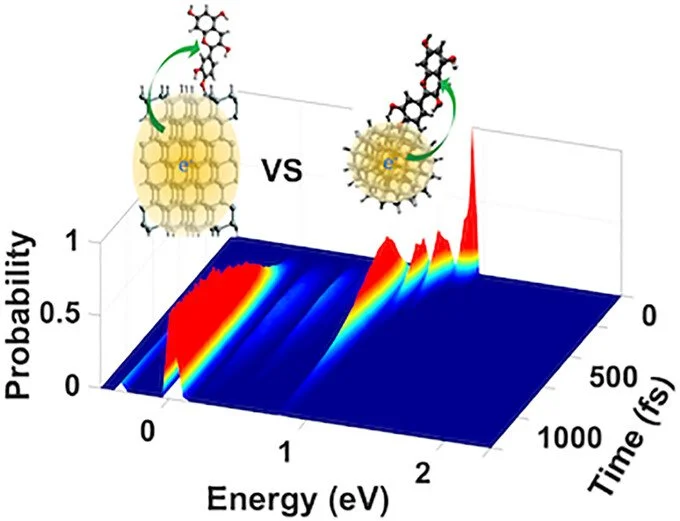Quantum Confinement and Decoherence Effect on Excited Electron Transfer at the Semiconductor–Molecule Interface: A First-Principles Dynamics Study
Excited electron dynamics at the semiconductor–molecule interface play a vital role in many solar energy conversion applications and beyond. First-principles dynamics simulation is used to study how excited electron dynamics in a type-II semiconductor–molecule interface is affected when the surface of a bulk semiconductor is replaced with that of a quantum dot. In particular, the interface between the hydrogen-terminated silicon(111) surface and a simple organic molecule is investigated. Quantum confinement was found to significantly slow down the excited electron relaxation and the interfacial transfer of the excited electron. Additionally, the role of decoherence was examined. The decoherence affects the dynamics much more significantly for the interface with the quantum dot, while the bulk surface case is affected only marginally by it. Compared to the excited electron relaxation within the quantum dot, the decoherence effect was found to slow down the interfacial transfer from the quantum dot to the molecule by more than an order of magnitude, exhibiting a significant quantum Zeno effect.
Wong, J. C.; Kanai, Y. Quantum Confinement and Decoherence Effect on Excited Electron Transfer at the Semiconductor–Molecule Interface: A First-Principles Dynamics Study. J. Phys. Chem. C 2023, 127 (1), 532–541. https://doi.org/10.1021/acs.jpcc.2c05657

